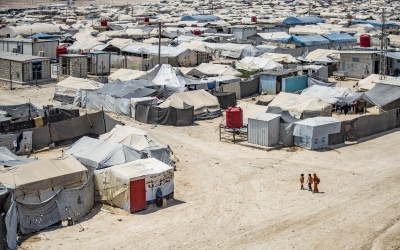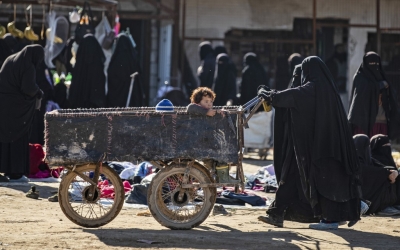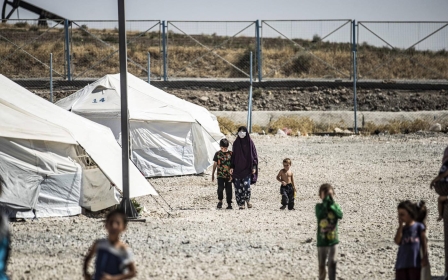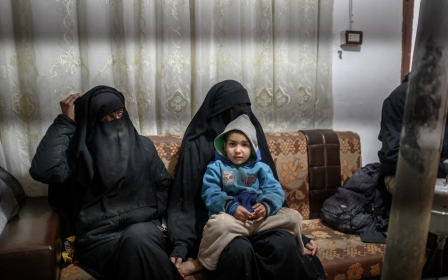Syria war: British children and women 'abandoned to torture and death' in IS camps
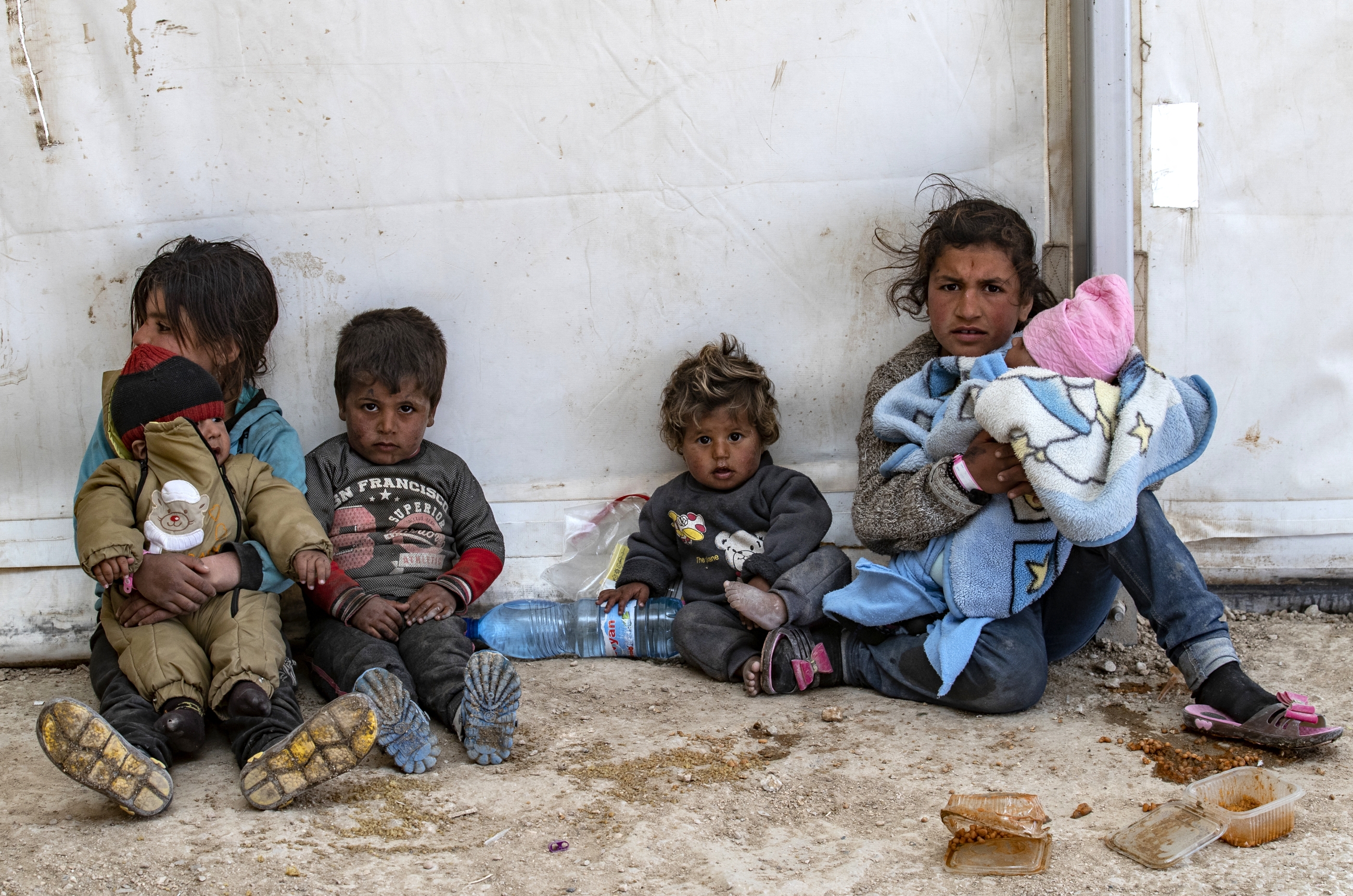
The detention conditions in which British children and women are held in the al-Hol and al-Roj camps in northeastern Syria cumulatively amount to torture, said a report released by Rights & Security International (RSI) on Wednesday.
According to Human Rights Watch, an estimated 12,000 children and women who are not originally from Iraq and Syria live in detention camps for family members of suspected Islamic State (IS) militants, which also house refugees who lived under IS occupation. Most of the children detained are under 12 and many under five, the report said.
RSI reported that women and children held in the camps are at a constant risk of violence, exploitation, fire, disease and death, while being “arbitrarily detained” without charges.
Poor sanitation and inadequate living conditions jeopardise the lives of everyone living in the camps, especially children, said the London-based advocacy group, adding that deaths linked to malnutrition, dehydration and diarrhoea were preventable.
“No one should be abandoned to torture and death, let alone because of Islamophobic stereotypes or unproven assumptions,” Sarah St Vincent, RSI’s executive director, said.
‘Dehumanising’
UN experts have previously described the conditions in the detention camps as a “blight on the conscience of humanity".
Reports cited by RSI indicate that 13 children died in al-Hol between January and September 2021 because of fire-related injuries. A Save the Children report from September said that an average of two children die every week at the camps.
The RSI report raised serious concerns about the forced separation of children from their mothers or caregivers. A humanitarian worker who spoke to the advocacy group estimated that between 300 and 350 teenage boys had been forcibly removed from al-Hol, separating them from their mothers and caregivers.
The lack of adequate education, healthcare, nutrition and opportunities for children’s development also violates their rights, the report said.
"The dire humanitarian conditions in the camps have taken a staggering toll on the lives and well-being of the children living there," Emily Ramsden, legal and policy officer with RSI, told Middle East Eye.
"Those children who have survived face ongoing threats to their lives and their physical and mental health as a result of injuries and trauma sustained before and during their time in the camps," she added.
Discriminatory practices “violate international law and dehumanise the detainees” and “amount to torture”, RSI stressed.
‘The international ban on torture is absolute and fundamental, and the British government risks losing its credibility on these issues by abandoning people - including young children - in agonising and life-threatening conditions for years," St Vincent said.
Calls for repatriation
The fate of foreigners detained in camps, the majority of whom are women and children, has remained a lingering question for many countries such as Britain, which are reluctant to repatriate citizens who may have had ties to IS.
The report drew attention to the fact that some of the detained women had been stripped of their citizenship by their countries of origin, taking away means to challenge their confinement in the camp.
'In making a choice not to repatriate its nationals, the British government is knowingly contributing to the continued exposure of British children and women to torture and a risk of death'
- Sarah St Vincent, RSI’s executive director
"In making a choice not to repatriate its nationals and former nationals, the British government is knowingly contributing to the continued exposure of British children and women to torture and a risk of death," Ramsden said.
This refusal by London, St Vincent argued, "blatantly ignores fundamental human rights that the British government promotes on the international stage, and treats these Muslim women and children as less than human”.
Kurdish authorities, which control the camps, have previously warned that the detention camps, and al-Hol in particular, were a powder keg for extremism. RSI meanwhile described the camps as “lawless” environments where the “threat of violence and exploitation is ever present”.
Responsibility of camp guards
The advocacy group report drew from fieldwork and interviews for a previous report, which called the Syrian detention camps “Europe’s Guantanamo”.
In their 2020 report, RSI had also placed part of the blame on the Syrian Democratic Forces (SDF), guards who were accused of “inhuman and degrading treatment that may amount to torture”.
“RSI has received numerous reports of beatings, verbal abuse and coercive behaviour on the part of camp authorities,” the report said.
The 2020 report also described mothers being confined in tiny cells with their infant children for up to several weeks.
Others said they had been separated from young children left to fend for themselves, including one mother separated from a baby she was still breastfeeding.
Abdulkarim Omar, foreign affairs spokesperson for the Kurdish administration in northeastern Syria, told MEE at the time that authorities in the region lacked the resources to manage the camps effectively and conceded that mistakes may have been made.
He said torture and degrading, or humiliating treatment were forbidden and officials were trying to deal with the situation in accordance with international law.
“We are solely responsible for the safety and security of thousands of families of IS militants in al-Hol and al-Roj camps, something far beyond our modest capabilities, due to the failure of the international community to cooperate with us and their refusal to repatriate their citizens,” he said.
Middle East Eye delivers independent and unrivalled coverage and analysis of the Middle East, North Africa and beyond. To learn more about republishing this content and the associated fees, please fill out this form. More about MEE can be found here.


